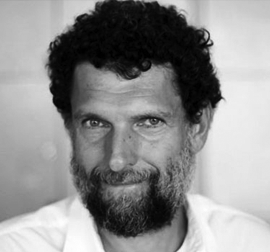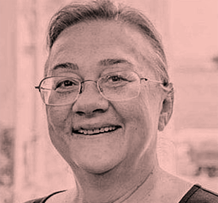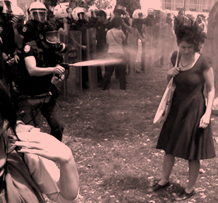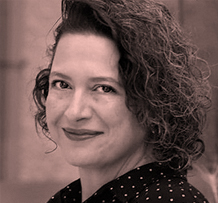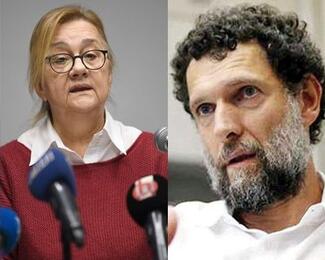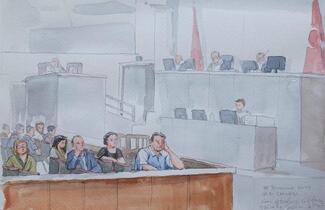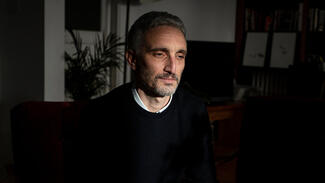Businessperson Osman Kavala is a civil society leader in Turkey. He stepped into the world of business in 1982. He has pioneered efforts to promote democracy, human rights, and multiculturalism in Turkey through his companies and civil society organizations. Following the solidarity actions he initiated after the 1999 Istanbul Earthquake, he dedicated himself to work in the field of civil society.
As the founder of several civil society organizations in Turkey, Kavala aimed at emphasizing cultural diversity, promoting dialogue in arts and culture, strengthening cultural collaboration and protecting cultural heritage.
Kavala was taken into custody on 18 October 2017 and was sent to the Silivri Jail 15 days later on charges of “being the mastermind of the 2013 Gezi Park protests” and “being behind the attempted coup of 15 July 2016.” He is still being held at the same jail. The scope of Kavala’s investigation was expanded through new police operations.
In November 2018, police forces raided the homes of 13 academics and rights defenders, including the employees of Anadolu Kültür—the NGO Kavala leads. The 13 individuals were taken into custody. All were released except for Yiğit Aksakoğlu, who was sent to jail. Even though Kavala was arrested on charges of “attempting to change the constitutional order” and “attempting to overthrow the government,” an indictment that would clarify these charges against him was not prepared for 1 year and 4 months.
In the meantime, Kavala’s lawyers filed 20 applications, stating that the situation “violated the right to a fair trial, prevented access to documents, and undermined the principle of presumption of innocence.” All objections were rejected. Meanwhile, Kavala filed an application to the Constitutional Court, arguing that his arrest in December 2017 was unlawful. His application to the Constitutional Court filed in 2017 was rejected by a majority vote on 22 May 2019. In its reasoning, the Court insisted on the charges. Presiding Judge Zühtü Arslan opposed the court’s decision. Arslan was one of the five members who announced his dissenting opinion and criticized the indictment stating that “The fact that Kavala attended and supported Gezi events alone does not indicate he committed an offense” and emphasized that “the prosecution failed to establish the existence of strong evidence requiring the continuation of his detention.”
A similar application was lodged before the European Court of Human Rights (ECHR). The application dated 7 June 2018 was accepted by the Court in August 2018. The ECHR asked the government to respond to the allegations on 19 September 2018. The Council of Europe also announced that the Council asked to intervene in Kavala’s case before the ECHR. The Republic of Turkey responded to the ECHR five months later, on 13 March 2019, only a few weeks following the acceptance of the indictment that was already delayed by 16 months.
The 657-page indictment announced on 19 February 2019 accused Kavala of financing and organizing the Gezi protests that took place in 2013. Thus, he was accused of attempting to overthrow the government. Kavala’s phone conversations concerning the need to bring tables and chairs to Gezi Park and his international visits were shown as evidence for these charges. Kavala, along with 15 people mentioned in the indictment, are accused of preparing the Gezi events since 2011 and of constituting the “top management” of the events in 2013. The indictment, known as “Gezi Park Events,” was accepted in March 2019.
The first hearing was held on 24 and 25 June 2019 in Silivri. Yiğit Aksakoğlu was released, but the court ruled on the continuation of Osman Kavala’s detention. The Court took a similar stance during the second hearing, which was held on 18 July 2019.
A defender of human rights through arts, in 1983 Kavala contributed to the establishment of İletişim Yayınları—a leading publishing house in Turkey—to serve the country’s democratization and demilitarization process. Kavala founded the non-profit Anadolu Kültür in 2002. He founded the Diyarbakır Art Center in the same year to contribute to the revitalization of Diyarbakır’s culture and arts scene. In 2004, he founded the Kars Art Center. He participated in the foundation of the Association for the Protection of Cultural Heritage, and founded DEPO—a prominent culture and arts center, and discussion platform in Istanbul. Before being arrested, Kavala actively supported DEPO activities. In addition to his work at Anadolu Kültür as the Chair of the Board, Osman Kavala is also a founding member, board member and on the advisory board of many civil society organizations such as the Open Society Foundation, Turkish Economic and Social Studies Foundation (TESEV), Turkish Foundation for Combating Soil Erosion, for Reforestation and the Protection of Natural Habitats (TEMA), History Foundation, Diyarbakır Political and Social Research Institute, and Turkish Cinema and Audiovisual Culture Foundation.
Today, Kavala is the main defendant in the Gezi Park case and is facing aggravated life imprisonment.
On 10 December 2019, The European Court of Human Rights called for the immediate release of Osman Kavala, saying there was a lack of reasonable suspicion that he had committed an offense. “In the absence of facts, information or evidence showing that Mr. Kavala had been involved in criminal activity, he could not reasonably be suspected of having attempted to overthrow the Government by force or violence” the court said, calling on authorities to secure his release. In the fourth hearing of Gezi trial held on 24 December 2019, the court has ruled that the arrest of businessperson and rights defender Osman Kavala shall continue. In the fifth hearing of Gezi trial, on 28 January 2020, the defending attorneys' requests for recusation have been rejected. While the attorneys left in protest, the audience was ordered out of the court hall. The court has not released Osman Kavala despite ECHR verdict. The prosecutor presented his opinion as to the accusations on Gezi trial to the court on February 6, 2020. He asked Osman Kavala, alongside with Mücella Yapıcı and Yiğit Aksakoğlu be penalized as per the relevant provisions in the Article 312 of the Turkish Penal Code (TCK) on charge of "attempting to overthrow the Government of the Republic of Turkey or attempting to partially or completely prevent them from fulfilling its duties by using force and violence."
The next hearing of the case was on February 18, 2020. The Istanbul 30th Heavy Penal Court has acquitted all suspects in the case into the Gezi Park protests of 2013. All 16 suspects in the case were acquitted of all charges and businessman, philanthropist and human rights activist Osman Kavala is set to be freed on Feb. 18 However, Kavala was arrested again for another investigation without being released. The Istanbul Chief Public Prosecutor dispatched Kavala, who was detained again in Silivri, to the court on the same day, demanding his arrest. Duty Magistrate Judge of the scope of July 15 investigation, decided Kavala to be arrested for "attempting to change the constitutional order of the Republic of Turkey by using force and violence" on February 19, 2020. The Prosecutor General claims that Osman Kavala was involved "July 15 coup attempt" in the decision process. In his statement at the court, Osman Kavala stated that he had been illegally detained for two years and four months and stated that the violation of rights continued with the detention order issued after his acquittal decision. He said the allegation that he supported the July 15 coup attempt was unfounded. On May 12, 2020, The European Court of Human Rights (ECtHR) has rejected the request for referral of its ruling on Kavala to the Grand Chamber, which means that its ruling on Kavala is final. The attorneys of Osman Kavala have appealed to court on May 20, 2020 and requested his release, underlining that Kavala is currently held behind bars on the very grounds that are deemed as a violation of rights in the finalized judgement of the ECtHR.
The Constitutional Court (AYM) would decide on Kavala's individual application on September 29, 2020, but decided to postpone it on the same day. Hours after the announcement of the decision, it was announced that the second indictment against Osman Kavala was sent to the court. In the new indictment, the Istanbul Chief Public Prosecutor's Office requested aggravated life imprisonment from Article 309 titled "to abolish the constitution" and a prison sentence of up to 20 years for Kavala from Article 328 titled "espionage".
The first hearing of the case was held on December 18, 2020, at the Istanbul Courthouse. Kavala was connected to the hearing at the 36th High Criminal Court of Istanbul with the Audio and Video Information System (SEGBİS). After the trial president read the indictment, Kavala made his defense. In his defense, “None of the charges in this indictment were based on factual basis, evidence, or examination of a concrete act. These are the claims that are diametrically opposed to my worldview, ethical values and the purposes of the activities of the non-governmental organizations for which I am responsible. In the absence of concrete evidence, the allegations were made the justification of each other, the charges were intertwined and an effort was made to create a perception that I was guilty" said. The General Assembly of the Constitutional Court handled Osman Kavala's individual application on December 29, 2020 and decided that the right to freedom and security of the person guaranteed in Article 19 of the Constitution was not violated. On January 22, 2021 the 3rd Criminal Chamber of the Istanbul Regional Court of Justice lifted the acquittal decisions in Gezi Trial. The Chamber ordered that the case file be sent to the court of first instance for re-examination and judgment. With the missing evidence, it was decided to continue the trial. The Istanbul 36th High Criminal Court decided at the hearing on February 5, 2021 that the case filed with the charges of "attempting to overthrow the constitutional order" and "political and military espionage" be combined with the Gezi trial.
The Istanbul 30th Heavy Penal Court began the retrial of Kavala and 15 others on May 21, 2021. Kavala, who attended the hearing through SEGBIS, recalled the arbitrariness and ambiguity of the evidence in the indictment, and gave examples from Germany's Nazi period. While the continuation of Osman Kavala's detention was decided by the majority of votes, the president of the court opposed the decision. The verdict of the Çarşı case, in which 35 people were acquitted in December 2015, was overturned on April 28, 2021. Overturning the decision, the Supreme Court ruled that the file should be merged with the Gezi Park case. Mahmut Başbuğ, the judge of the 30th High Criminal Court, wrote to the Istanbul 13th High Criminal Court, where the Çarşı case will be heard on June 15, 2021, suggesting that the files be combined. Then, on July 28, 2021, Başbuğ, who was temporarily appointed to this court, found his request on the spot and approved the merger. Thus, the files were combined with the judgment of the judge who made both the request and the decision. Following the merger decision, Kavala's hearing scheduled for August 6 was canceled and the new hearing date was October 8, 2021. At the hearing on October 8, Kavala's lawyer Köksal Bayraktar demanded that the files be separated and his client released. Osman Kavala, who was connected via SEGBİS, said in his defense, "The striking thing about the accusations against me is not that they are not based on any evidence. These are fantastic allegations based on conspiracy theories that go beyond the bounds of logic. Continuing my detention on insignificant excuses is extrajudicial execution, an effort to create a perception, and circumventing the ECtHR's decision. "I hope that the unification of the cases will lead to a better understanding of the threats faced by the Turkish judiciary. I hope that such an indictment will not be prepared again in our country, that such a thing will never happen again," he said. In his opinion, the prosecutor demanded the continuation of Kavala's detention due to the nature of the crime. The court decided to continue Kavala's detention on the grounds that there was "strong suspicion of crime and concrete evidence". In the second hearing on November 26, 2021, the decision remained the same. The prosecutor demanded the continuation of Kavala's detention. The court accepted this request with a majority of votes. The fifth hearing of the merged case was held on February 21, 2022. The prosecutor of the trial demanded that the files of the defendants of the Çarşı trial be separated as of the current stage. The court decided to continue Kavala's detention and to separate the files. The next hearing will be held on March 21, 2022. Announcing his opinion on March 4, 2022, the prosecutor demanded that Osman Kavala and Mücella Yapıcı be sentenced to aggravated life sentence on the charge of “attempting to overthrow the Government of the Republic of Turkey by using force and violence”. For the other defendants, Çiğdem Mater Utku, Ali Hakan Altınay, Mine Özerden, Can Atalay, Tayfun Kahraman, and Yiğit Ali Ekmekçi, he demanded from 15 up to 20 years in prison with the charge of “aiding the attempt to overthrow the Government of the Republic of Turkey by using force and violence“. From the very beginning, throughout the entire process, Osman Kavala was targeted by the media close to the government and the most authoritative mouths of the government. He was even associated with Russia's invasion of Ukraine, which started on February 24, 2022. In his statement to Sabah newspaper columnist Mahmut Övür on March 14, 2022, Minister of Interior Süleyman Soylu said, "The Sorosists among us are those who are backing Kavala. Whoever wants Kavala to be released by perjury, is also the murderer of children in Ukraine and Syria. that is it,” he said. Participation in the sixth hearing on March 21, 2022 was quite intense. Kavala, who did not attend the last three hearings, attended the hearing through the Audio and Visual Information System (SEGBİS). Deciding to give the defendants and their lawyers a final time to make statements against the opinion on the merits, the delegation ruled that their demands for a deepening of the investigation would not contribute to the file. The court also decided to continue Kavala's detention.
The verdict hearing of the case was held on 22 and 25 April 2022. Although it was revealed that Murat Bircan, one of the judges before the decision, was a candidate for parliamentary candidate from the AKP in the 2018 general election, the lawyers' request for the judge to withdraw was not accepted. The court board sentenced Kavala to an aggravated life sentence on charges of "attempting to overthrow the government".
On July 11, 2022, the ECtHR ruled in the Osman Kavala case that Turkey violated Article 46/1 of the ECHR on the grounds that "it did not fulfill its obligations regarding the ECHR decisions". It was decided to pay Kavala 7 thousand 500 Euros for court costs.
On December 28, 2022, the 3rd Penal Chamber of the Istanbul Regional Court of Justice, upheld the aggravated life sentence that was given to Kavala, announcing that it found it appropriate.
Kavala, who has been in detention for 2,000 days as of April 23, 2023, issued a message and emphasized the Presidential election to be held on May 14, 2023, and "After May 14, an understanding that respects legal principles, human dignity and human rights will prevail in the judiciary and in all public institutions. I hope,” he said.
The Committee of Delegates, convening at the ambassadorial level on behalf of the Committee of Ministers of the Council of Europe, made a statement on the decisions taken on 5-7 June 2023 regarding the meetings it held in order to supervise the compliance of the member states with the provisions of the ECHR. The statement warned that if Osman Kavala is not released by September, he will consider all options for Turkey, including expulsion from membership.
In July 2023, the Chief Public Prosecutor's Office of the Supreme Court of Appeals sent the four-part notification regarding the Gezi Case to the 3rd Penal Chamber of the Court of Cassation. It was requested that the convictions of the defendants, except for Mücella Yapıcı, be upheld in the Gezi Park trial, in which eight defendants were tried.
Kavala made a written press statement on the notification on July 11 and said, "The notification prepared by the Chief Public Prosecutor's Office contains more grave slanders, the principles of law are more clearly violated. It is a dangerous development for our country that the understanding of reading intent in criminal law, which is completely contrary to the principles and decisions of the European Court of Human Rights (ECHR), finds expression at the level of the Court of Cassation."
The 3rd Criminal Chamber of the Supreme Court of Appeals decided on September 28, 2023, the objection regarding the verdicts given in the case filed at the Istanbul 13th High Criminal Court against 17 people. 3rd Criminal Chamber sentenced Osman Kavala to aggravated life imprisonment for the crime of 'attempting to overthrow the government of the Republic of Turkey'.
The Council of Europe's 2023 Vaclav Havel Human Rights Award was given to Osman Kavala on 9 October 2023.
Osman Kavala applied to the ECHR for the second time in April 2024. The ECtHR decided to examine the application as a priority.
On April 11, 2024, the Committee of Ministers of the Council of Europe published its annual report on the attitude of member states towards ECtHR judgments. The report warned that Turkey's failure to implement the release order against Mr. Kavala posed a significant challenge to the European Convention on Human Rights system.
